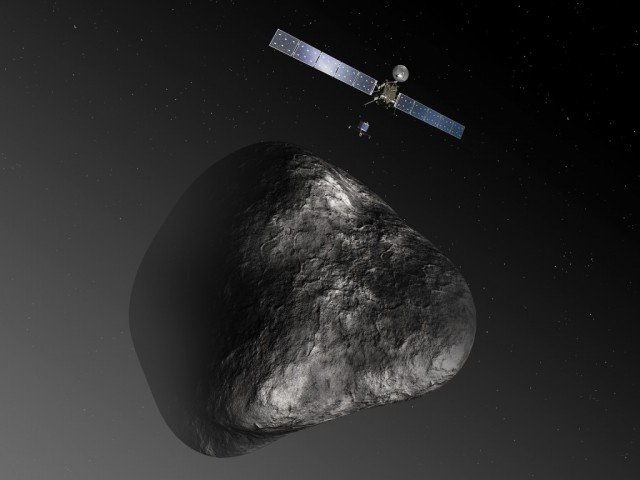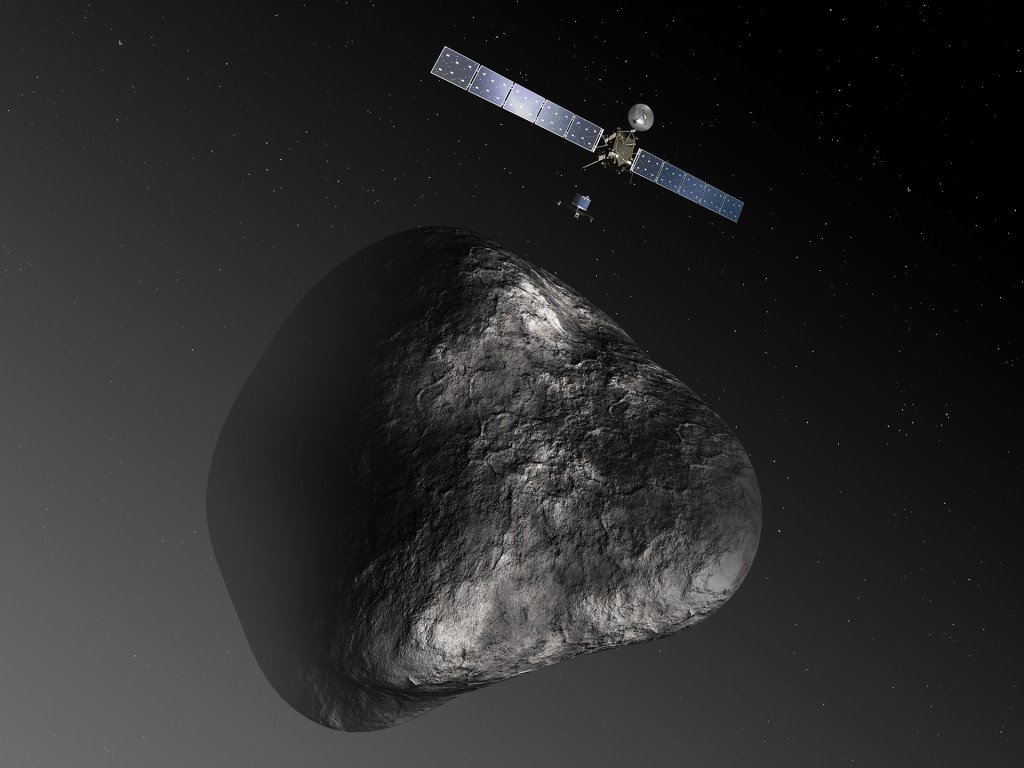After more than 12 years in space, ESA’s Rosetta mission is set to end its flight.
The Rosetta probe that has been tracking a comet for the past two years is going to deliberately crash itself into the 2.5mile-wide ball of ice and dust.
European Space Agency (ESA) scientists say the satellite has come to the end of its useful life and they want to get some final, ultra-close measurements.
Rosetta is not expected to survive the impact with Comet 67P/Churyumov–Gerasimenko.
Even if some of its systems remain functional, pre-loaded software on board will ensure everything is shut down on contact.
On September 29, controllers at ESA’s operations center in Darmstadt, Germany, commanded Rosetta to change course.

The maneuver altered the mission’s wide orbit around the duck-shaped icy wanderer and put it on a direct collision course.
It is a 12 mile descent that should lead to the probe hitting the comet’s “head” at roughly walking pace at about 11:20 GMT on September 30.
The crash velocity will be low but Rosetta was never designed to land and so various components will almost certainly be crushed as it dumps down.
Rosetta arrived at 67P/Churyumov-Gerasimenko in August 2014, after a 10-year journey from Earth.
In the 25 months the mission has lived alongside the mountainous object it has acquired more than 100,000 images and instrument readings.
These have provided an unprecedented insight into the behaviur of the comet, its structure and chemistry.
Rosetta even dropped a small robot called Philae on to the surface in November 2014 to gather additional information – a historic first in space exploration.
Comets are thought to be the near-pristine leftovers from the formation of the Solar System, and so all the data sent back from 67P will give scientists a remarkable glimpse into the conditions that existed four and a half billion years ago.
